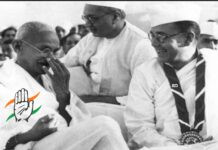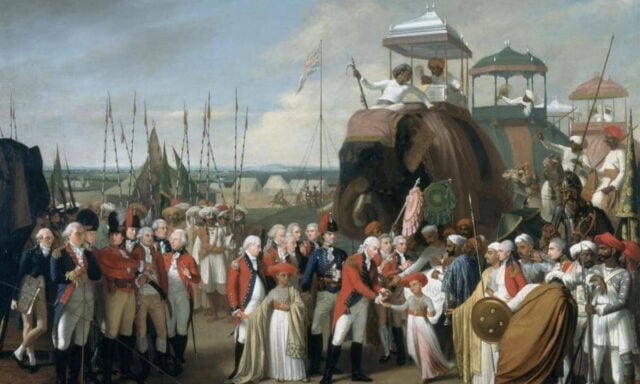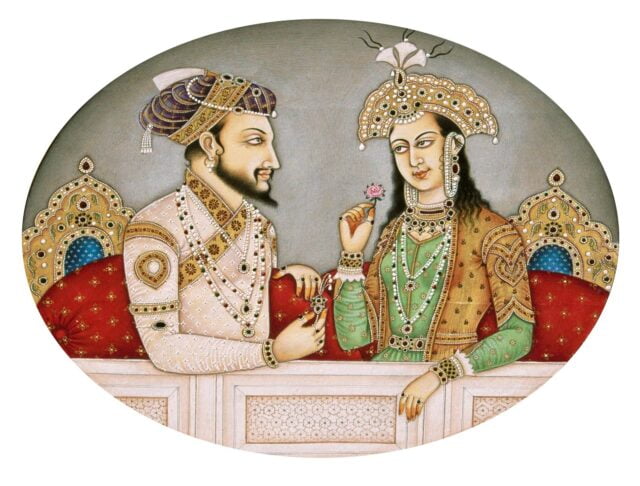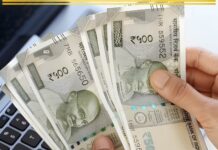Indians have been at the forefront of many things throughout history even though we have been a free and independent country for only the past 70 years. One of these many things is trade in the 17th century.
Virji Vohra was a merchant who was alive during the Mughal rule and is described to be the richest trader in the world by none other than the British East India Company! His role as the financier of the East India Company between 1617 and 1670 was extremely crucial for the company’s success.
Who Was Virji Vohra And What Were His Business Practices?
Virji Vohra is definitely one of the most adept businessmen the world has seen. He was born in 1590 and died in the 1670s. Virji was a wholesale trader and his personal worth was described to be around 8 million rupees, which is an impressive amount of money for the time period.
Virji Vohra was a shrewd trader and knew how to study his audience well to get maximum returns on his products. Some of his products mentioned in historical journals range from corals to pepper to gold and even include spices such as cardamom.
A study of the timeline of his business activities shows how Virji Vohra slowly but steadily expanded his market and his products. A lot can be learnt from the practices followed by Virji Vohra.
Read More: 8 Interesting Facts About Mughals That You Never Heard Before
In 1625, he bought the entire stock of pepper brought to India by the Dutch. The English factory at Surat had decided to buy 10, 000 pounds of pepper from Virji at the rate of 16 mahmudis per maund, which is approximately 37 kilograms.
Virji Vohra decided to sell his product at 16.25 mahmudis. The English were ultimately forced to buy pepper from Virji at a price higher than what they were intending on paying as Virji immediately bought every stock of pepper arriving in the country making him the sole owner of all stock of pepper in the country.
Between 1629 and 1668 Virji grew his stores by being in constant trade with the English. He bought coral from the English at a discount which they were having difficulty selling, sold almost 20, 000 mahmudis worth of pepper to them, traded 12, 000 tolas (1 tola is equal to almost 10 grams) gold, sold spices like mace, nutmeg, turmeric, cardamom and cloves to the English at a huge profit by buying all the products for cheap from the Dutch traders again making him the sole owner of the entire stock.
Virji Vohra continued on with his business practices and even went on to trade precious and extremely valuable things like ivory. Virji Vohra is described as a “sole monopolist” due to his practice of often buying the entire stock of a product worth 5-10 lakhs and then selling them at a huge profit.
Virji Vohra’s Relations With The European Traders And Mughal Authorities
Even though Virji and the East India Company looked like rivals and competitors, he was actually their biggest creditor and often bought products from them. The two were known to often send letters and gifts to each other.
Virji was known to charge a high-interest rate(1-1.5%) per month which the English often complained about. “The town [Surat] is very empty of moneys; Virji Vora is the only master of it” and, “none but Virgee Vorah hath moneye to lend or will lend,” is stated in various English records of the time.
Most of the capital held by the East India Company came from Virji Vohra who often lent money to individual English men to pursue their own private businesses.
On the other hand, Virji is said to have cordial relations with the Mughal Governors of the time. He was briefly put in jail by Hakim Sadra, the governor in 1635, but all of his charges were absolved by Shah Jahan when he was presented before the emperor.
Virji is also known as the person who sent the emperor Shah Jahan four Arab horses.
By the mid-1660s Virji had become an old man. Major setbacks arrived in the form of the Maratha Chief, Shivaji raiding his stores twice: once in 1664 and again in 1670. The last records about Virji Vohra mention that he had quite possibly retired from the business which was taken over by his grandson and likely died in 1675.
Image Sources: Google Images
Sources: EconomicTimes, SabhlokCity, JSTR.org +more
Meet the Blogger: Charlotte
This post is tagged under: Indians, 17th century, Virji Vohra, merchant, Mughal rule, British East India Company, financier, East India Company, businessmen, wholesale trader, trader, corals, pepper, gold, spices, cardamom, the Dutch, The English, Surat, mace, nutmeg, turmeric, gold, cloves, Dutch traders, ivory, Mughal Governors, Hakim Sadra, Shah Jahan, Maratha Chief, Shivaji
Read More:
How Did British Colonial Rulers Played A Part In Shaping Toxic Masculinity Among Indian Men?





































